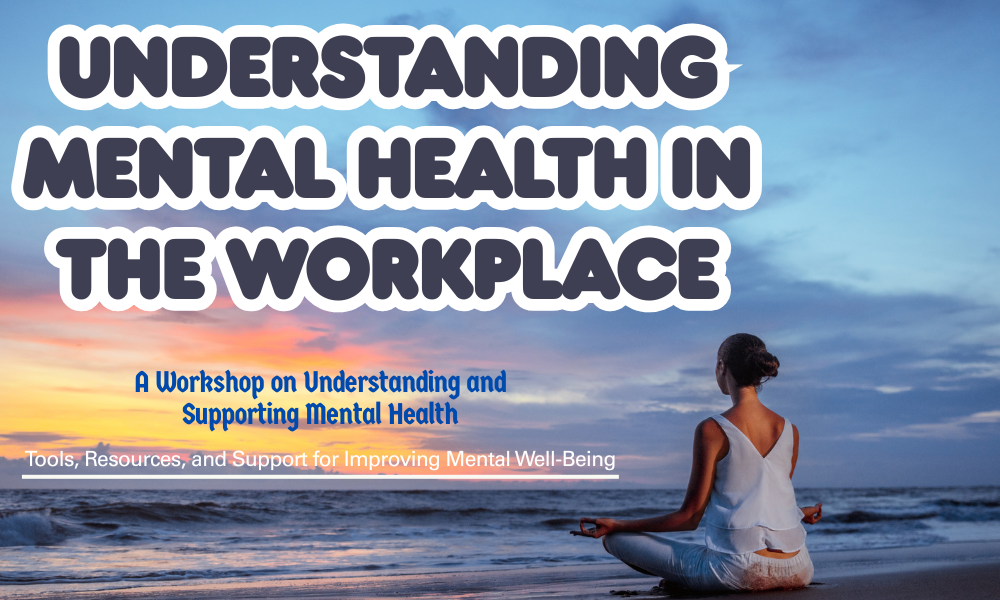Breaking the Stigma: Understanding Mental Health in the Workplace
How individuals think, feel, and act is often affected by their mental health. Over the years, more attention has been given to mental health, though in a lot of jobs, it is still easy to overlook. Employees are sometimes too shy to address their issues because of the stigma related to mental health. Benefiting both employees and the company’s success, we must create a work environment that gives utmost importance to mental health.

Mental Health Matters at Work
Due to having many tasks, worrying about losing their job, conflicting relationships or a stressful work setting, employees usually face mental health problems that affect them at home and at work. WHO has reported that the global economy misses out on nearly $1 trillion each year due to depression and anxiety disorders.
Many people are unaware that anxiety, depression and burnout are much more common than anticipated. Even so, many companies approach mental health matters in the office with uncertainty or simply ignore them. People should know that mental health is as significant as physical health. It plays a role in decision-making, attention, producing results, working with teams, innovation and level of spirit. The happiness and health of employees greatly contribute to the success of the company, so this point must be recognised by organisations.
The Negative Image of Mental Health
One big reason preventing us from dealing with mental health in the workplace is the social pressure surrounding it. There are those who still view mental health concerns as a weakness that nobody else should know about. Because of this opinion, some employees might be shy about talking about their struggles. In certain situations, individuals may fear mentioning their problems due to the risk of being mocked or fired.
The study shows majority of American employees in the U.S. have mentioned facing mental health problems during work. Yet, many employees who are part of minorities do not talk to anyone as they fear they will be treated unfairly or thought of as less able workers. Furthermore, it is a common misconception that those who struggle with mental health issues are weak.
The stigma associated with mental health in the workplace is detrimental to both employers and employees. When employees face challenges expressing their mental health issues, it may cause them to become more distant, less satisfied at work and even exhausted. Looking past the matter can cause changes in workplace culture and lower productivity, interest and morale for all employees.

Strategies Organisations Have to End the Stigma
1. Create an atmosphere where people can feel comfortable being themselves
The first thing to do is make sure all employees are comfortable sharing their thoughts on mental health at work. Helping employees by having open discussions on mental health can give them a sense of support. This aim can be accomplished by organising workshops, seminars or meetings where employees are taught about mental health problems and their solutions.
Managers and leaders are responsible for establishing the atmosphere within the organisation. Those who are open and caring about their mental health often encourage employees to do the same. Studies actually demonstrate that sharing their experiences or asking for help for mental health motivates other people to do the same.
2. Develop and introduce Mental Health policies and programs
Businesses should put policies in place to support the mental well-being of their employees. You may offer mental health days or paid days off for mental health concerns, give employees access to counselling or EAP services and supply them with ways to better manage stress and depression. As a result, people are less likely to have incorrect ideas about mental health problems and understand what to watch for in their co-workers. Providing workers with knowledge on mental health encourages them to support and empathise with colleagues.
3. Make work more flexible
The absence of work-life balance in jobs can lead to stress and fatigue. A flexible work plan can help employees manage their tasks effectively. When an employee has mental health concerns, flexibility enables them to keep up with their work and accurately manage their own health.
4. Provide a high degree of confidentiality and privacy
Workers must realise that their mental health issues will be discussed confidentially and with respect. All talks or arrangements about mental health in an organisation should be private and well-protected. When workers believe that the information they give isn’t going to be revealed, they are more willing to turn to their supervisors for support.
5. Foster a place where all people feel included and are treated equally
Such workplaces strive to respect and honour the variations of people’s lives and issues. Regardless of an employee’s mental health, they should feel accepted and respected by everyone in the company. Employers should ensure that everyone understands mental health problems do not change someone’s skills or value. Treating each employee nicely and fairly can greatly help in lessening discrimination.
Why We Should Care About Mental Health
If organisations challenge the stigma surrounding mental health, the results are simple to see. If employees feel supported, they work harder, work more happily and give more to their work. The use of essential resources and an encouraging environment helps reduce employee absenteeism, employee turnover and healthcare spending by the business. This will improve the organisation’s work quality by promoting a healthier, happier, and more successful environment.
The first step toward living environmentally friendly is being aware of your carbon footprint. Small changes, like using public transport, cutting down on single-use items, or switching to energy-efficient appliances, can make a big difference over time.
Also, addressing mental health makes a company’s workplace a better place to work, which results in attracting and retaining valued employees. Top achievers normally look for jobs that allow them to progress at work and still enjoy their personal lives.
Conclusion
It is important for leaders and everyone else in an organisation to commit to helping break the shame attached to mental health issues in the workplace. A friendly and welcoming atmosphere in the workplace enables companies to offer their employees more support when it comes to mental health and their overall lives. Prioritising mental health in an organisation benefits employee and, as a result, improves the company’s success.
Author’s Bio
Author Papri is professional content writer; she is always exciting to express thoughts & insights into wonderful words on various topics.



















